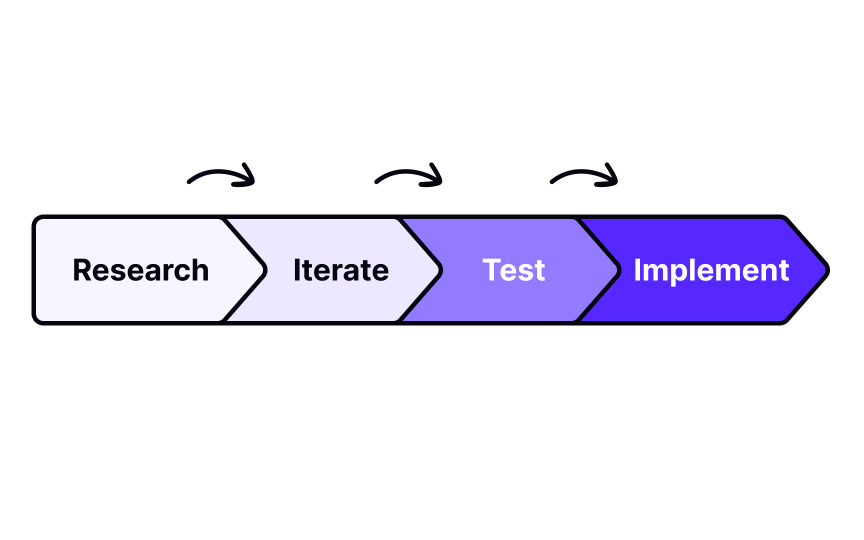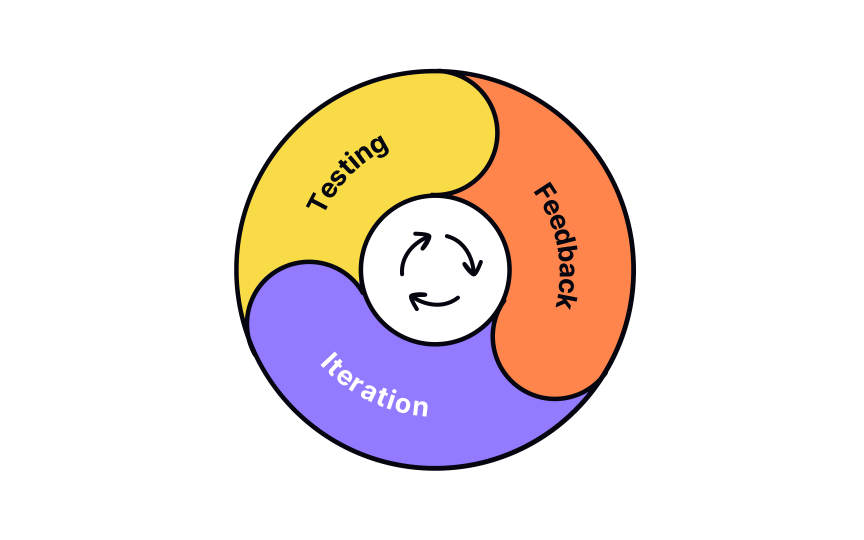Iterative
The iterative principle of service design implies that designing services is an ongoing process of testing, learning, and refining. It also emphasizes the importance of being flexible, responsive, and adaptable to changing needs and circumstances.
By adopting an iterative approach, service designers can test different ideas, gather feedback, and make changes based on what they learn. This process helps reduce risk, increase efficiency, and improve the overall quality of the service. For example, a company is designing a new online platform to sell its products. An iterative approach to service design here might involve:
- Creating a prototype of the platform and testing it with a small group of users to gather feedback
- Analyzing the feedback and making changes to the prototype based on what was learned
- Testing the revised prototype with a larger group of users to gather more feedback
- Repeating the cycle of testing, analyzing, and refining until the platform is ready for launch


